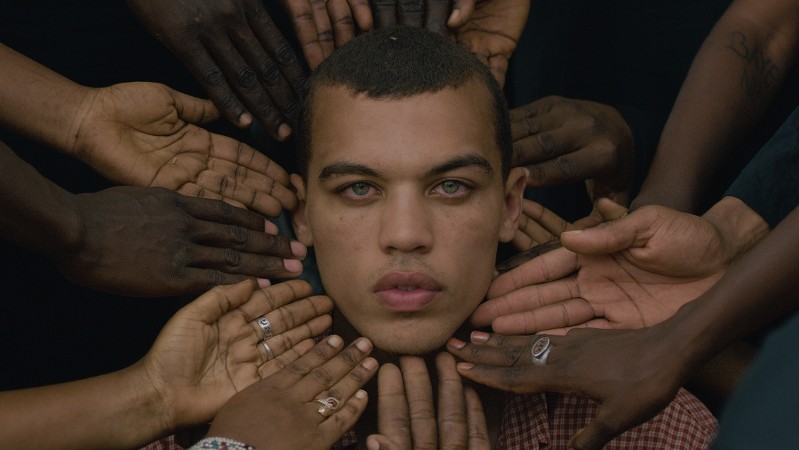White Colour Black Review
By Lydia Rostant
10 May 2021
Jospeh A. Adesunloye’s first feature film White Colour Black is an unexpected elegy writes Lydia Rostant

The protagonist of Joseph A. Adesunloye’s feature film White Colour Black, is haunted by his answering machine. The bleeping handset occupies his life; interrupting his gauche lifestyle with incessant alerts, and eventually confirming his deepest fear– that his father has died in Senegal. The 2016 film is in equal parts a brooding elegy and a stylish exposé, joining the worlds of London and Senegal with a charming breakout role from Dudley O’Shaughnessy.
Leke is a young photographer living in London. By day he cavorts with beautiful models behind the camera and by night … he cavorts with beautiful models behind the camera. His lifestyle is both terribly debauched and terribly inert – after a particularly wild night, we watch him humming in the shower, huddled and vulnerable in the glacial lights of his en-suite. Adesunloye’s use of colour is noticeable from the offset - the palette of gunmetal greys, corporate blues and icy whites providing a visual reference for Leke’s sense of urban isolation and nihilism.
And then the answer machine bleeps. Leke’s father back in Senegal has died, and he must return to his hometown to pay his respects. In this way, Adesunloye answers the gaping questions exposed by the first half of the film. The emotional sparsity and somewhat rigid scripting of the first 30 minutes reveals itself as a stylistic antithesis to the poignant depiction of Senegal that ensues.
Back in his hometown, Leke finally faces the reality of his father’s death. He is subsumed into a world of tradition, mythology and community love – O’Shaughnessy does a wonderful job at portraying the gradual softening of Leke, worn away by the unconditional tenderness of his larger family. Here, the colours are softer, more worn and dusty. The shots themselves are comparatively languorous – the wind silently shifting tall grass, the monotonous grey ocean, hands peeling and sifting through fruit. Where the narrative remains spare, the original soundtrack by Mathieu Karsenti provides an alternative sense of meaning, nudging and lifting the plot along.
It wouldn’t be hyperbolic to say that Adesunloye’s first feature is a labour of love –taking almost five years to reach distribution. It is rather fitting perhaps that a film concerned with longing and lingering had for itself quite such a protracted release. The elegiac nature of this film and its tender portrayal of familial bonds bodes well for Adesunloye’s future endeavours – hopefully we won’t have to wait quite so long to see it this time.




